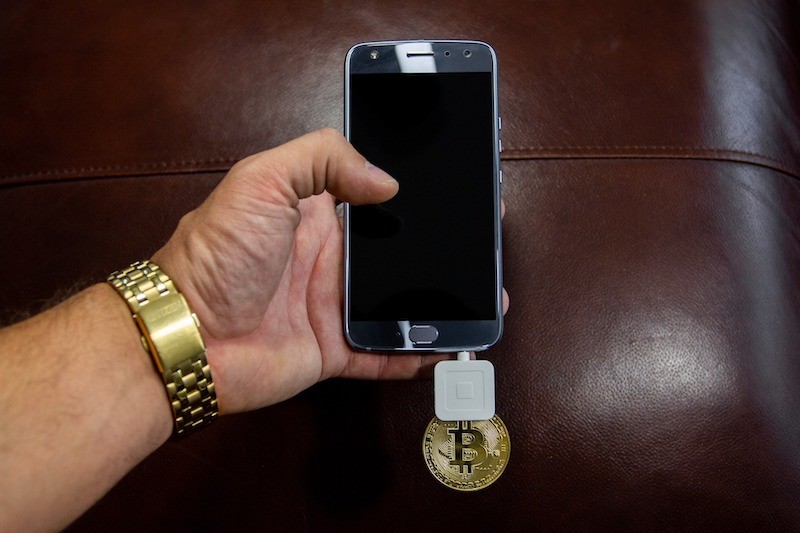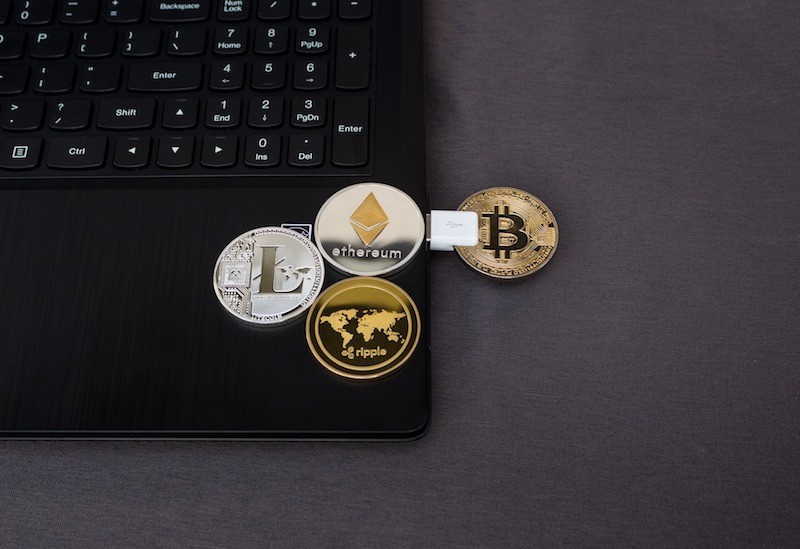What Is A Bitcoin Wallet?
Bitcoin wallets are digital storage devices used for holding bitcoin. Bitcoin wallets are also commonly referred to as digital wallets. Bitcoin wallets are an important part of the process for obtaining bitcoins. Bitcoin wallets share many similarities with physical wallets because they provide the same function. Just as a physical wallet is used for storing cash, a bitcoin wallet is used to hold bitcoins. However, the difference between a physical wallet and a bitcoin wallet is that bitcoin wallets do not store bitcoin literally. Instead, they store relevant information, such as the secure private key or password, which is used to make transactions and access bitcoin addresses. There are six main types of bitcoin wallets. These are desktop, mobile, web, hardware, paper, and brain wallets. If the bitcoin wallet is not associated with one managed within your country of residence, or if you hold that wallet in the name of an offshore company (bitcoin offshore company) instead of your own name, many call this an offshore bitcoin wallet.

Web Wallets
Web wallets allow users to send, receive, and store bitcoins using a web browser. Web wallets are frequently hosted by a provider. With the majority of web wallets, a provider manages the security of the private keys used to access the bitcoin and complete transactions. Some web wallets, however, allow users to remain in control of private keys. The main advantage of web wallets is that they offer users peace of mind since they cannot accidentally be deleted.
The most pronounced disadvantage of web wallets is that users give up some control. This is because web wallets generally manage private keys on behalf of users. As a result, security must be taken very seriously by both the web wallet provider and the user.
Desktop Wallets
Desktop wallets are bitcoin wallets which are installed directly on a user’s desktop computer. As a result, the users of desktop wallets have full control and responsibility over their wallets.
Private keys are stored on a hard drive when using a desktop wallet. As a result, it is only possible for a user to access their bitcoin on the computer which the wallet is installed on. The greatest risk associated with using a desktop wallet is that, with no backup, accidentally deleted bitcoin may be lost forever. As a result, it is essential that users of desktop wallets create strong passwords and make backups. These backups must be securely stored to avoid bitcoins being stolen or lost.
Desktop wallets are referred to as either full nodes or light clients. Full nodes host a full copy of the blockchain. Conversely, light clients provide only bitcoin storage capabilities. They depend on an external source to read the blockchain.
Mobile Wallets
Mobile wallets are bitcoin wallets which are designed to be used on a mobile device. Mobile wallets have the ability to scan QR codes. They can be navigated easily with a touch screen. Finally, mobile wallets enable users to easily send, receive, buy, and sell bitcoins. Mobile wallets are nearly always light clients, meaning that they do not store a full copy of the blockchain.
Hardware Wallet
Hardware wallets are specialized devices which are used specifically for the storage of bitcoins. The primary advantage of bitcoin wallets is that they offer more protection from theft than desktop or mobile wallets.
Paper Wallets
Paper wallets are used to store bitcoins in a physical medium, such as paper or metal. They share similarities with cash in that if a paper wallet is lost or ruined, the bitcoins held within the wallet are lost forever.
Brain Wallets
Brain wallets are bitcoin storage devices which are generated from a password or phrase. As with paper wallets, if the password or phrase of a brain wallet is lost, the bitcoins in the wallet are gone forever. For this reason, it is advisable that users avoid storing the password or phrase of the bitcoin wallet solely within their memory.

Securing A Bitcoin Wallet
Security is just as important when using bitcoin as it is when using traditional currency. For this reason, it is essential that bitcoin users keep their wallets secure. The following tips can be used by those with bitcoin to keep their wallets safe.
Choose online service providers carefully
There have been many reports of security breaches with regards to bitcoin exchanges and online wallets in the past. Unlike banks, many offshore bitcoin exchanges and online wallets often lack the insurance to cover their customers holdings in the event of a breach. As a result, online bitcoin wallets should not be used if security is of paramount importance. If a person does choose to use an online wallet, the service provider should be selected very carefully. Additionally, it is highly advisable that two-factor authentication be used in conjunction with an online bitcoin wallet.
Carry only small amounts
Bitcoin wallets function in much the same way as traditional wallets. A person should not keep a large number of bitcoins in a bitcoin wallet. This is the case for the same reason that most people wouldn’t keep a large amount of cash in a bitcoin wallet. The remaining bitcoin should be stored in a safer location, such as a bank.
Always make backups
As a result of the digital nature of most bitcoin wallets, computer failures and human mistakes pose a grave threat to users. Making a backup and storing it in a safe place can protect users from losing their bitcoins. Backups can also enable users to recover their wallets after their phone or computer has been stolen. This is the case provided that users keep their wallets encrypted.
Encrypt backups stored online
Backups of bitcoin wallets which are stored online are especially vulnerable to theft. Computers which are connected the internet may also be affected by malware and viruses. It is considered best practice to encrypt backups of any bitcoin wallets.
Use multiple secure locations
Keeping backups of bitcoin wallets stored in different locations will increase the security that the backups provide. If one location is compromised, a user with backups stored in multiple locations will still be able to access their bitcoins. For this reason, it is also advisable to use different media storage devices to hold bitcoin wallets, such as USB keys, hard drives, and dedicated mobile devices.
Remember the password
When using a brain wallet, it is essential to remember the password. If the password is forgotten, the bitcoins held within the wallet will be lost. There are very few password recovery options associated with bitcoin wallets. For this reason, many brain wallet users choose to keep a paper copy of their password stored in a safe place, such as a vault or safety deposit box.
Create a strong password
Creating a strong password is an essential component to keeping any type of bitcoin wallet secure. Using recognizable words or passwords which contain only letters is highly discouraged. Strong passwords are those which contain letters, numbers, and punctuation marks. It is advisable to create a password which is at least 16 characters long. The strongest passwords are generated by software designed specifically for this purpose. The downside to creating strong passwords is that they can be very difficult to remember. However, there are usually password recovery options for all types of bitcoin wallets except brain wallets.
Keep software updated
It is important to keep software associated with bitcoin wallets constantly updated. This is because the providers of bitcoin wallets will frequently create updates which improve the security features of the wallet.
Use multi-signature feature to protect against theft
A number of bitcoin wallet providers offer a multi-signature feature. This feature requires that multiple individuals give approval in order for the bitcoins to be spent. Organizations frequently use these types of wallets in order to give members access to their treasury while providing controls for withdrawals. Multi-signature wallets protect against theft by preventing thieves from stealing funds by using a single compromised device.
Estate Planning With Bitcoin
It is important to include any bitcoins in a will or estate plan. If heirs do not have knowledge of the location of wallets or know the passwords, they will not be able to access bitcoins left to them. A small amount of forward-thinking can have a huge impact on the security of a bitcoin user’s estate.

Why Use An Offshore Bitcoin Wallet?
Financial privacy is the number one reason that people choose to use bitcoin or other types of cryptocurrency. While the bitcoins themselves are anonymous, bitcoin wallets often are not. This is because users must provide a limited amount identifying information in order to register for the accounts associated with bitcoin wallets. As a result, it may be possible to trace the owner of bitcoins through the wallets used to carry out bitcoin transactions. For this reason, it is essential to choose the right jurisdiction when deciding on a bitcoin wallet provider. The location of the wallet provider will determine the laws to which it will be subjected.
More and more, savvy investors are choosing to use bitcoin wallets based in favorable offshore jurisdictions. Offshore bitcoin wallets may be used in the same fashion as offshore bank accounts. Offshore bitcoin wallets have many advantages over domestic bitcoin wallets with regards to financial privacy and asset protection. Domestic bitcoin wallets are governed by the laws of the United States. As a result, domestic bitcoin wallet providers may be legally compelled to reveal identifying information regarding their users. Furthermore, US judgments against debtors may be enforced against bitcoins to which the debtor has been effectively linked.
The majority of highly regarded offshore jurisdictions do not recognize the judgments of foreign jurisdictions. Additionally, an offshore jurisdiction will not release information regarding users of offshore bitcoin wallets unless the jurisdiction has a tax information exchange agreements with the US. Using an offshore LLC, such as one in the Caribbean island of Nevis. You can use a Nevis LLC in combination with an offshore bitcoin wallet can provide even greater financial privacy and asset protection.


